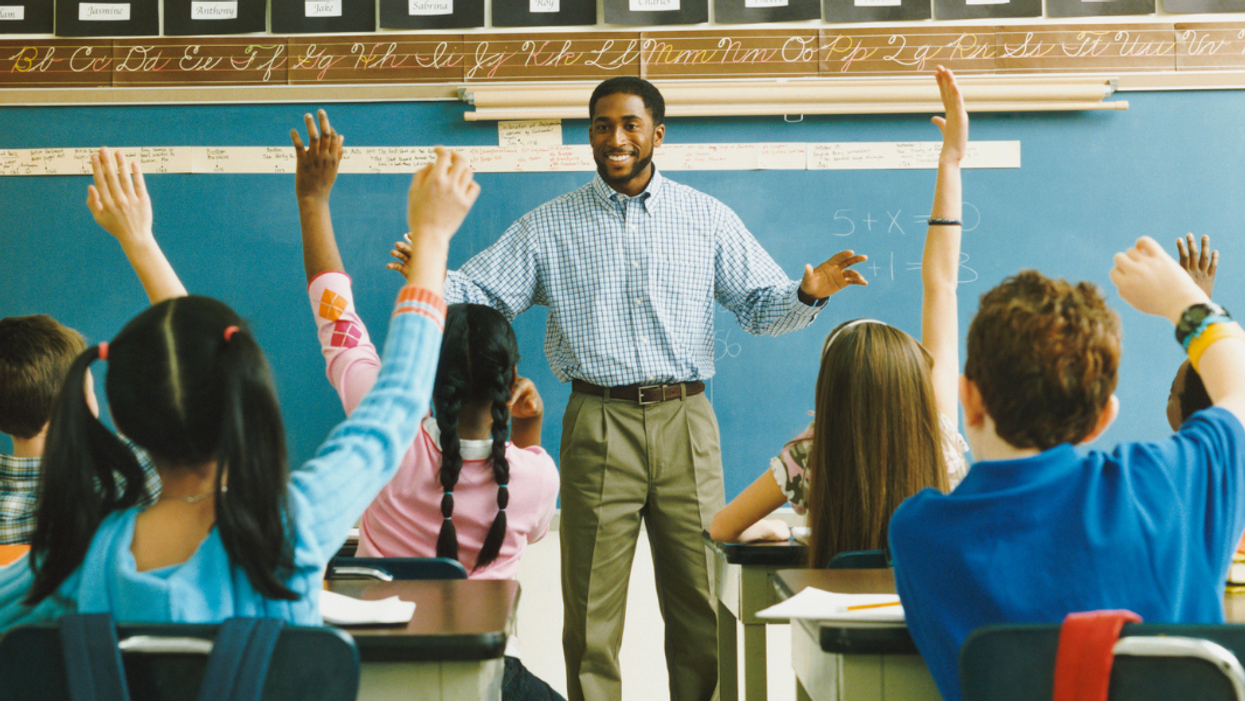Ace Parsi is Director of Coalition Engagement at iCivics, and serves as the co-chair for the National Week of Conversation K–12 Working Group.The opinions expressed in this piece are the author’s own and do not necessarily reflect the views of iCivics or the NWOC.
When I was eight, my family and I immigrated to the United States from Iran. It goes without saying that neither my older brother nor I learned the intricacies of democracy in Iranian schools—quite the opposite. If I hadn’t immigrated, chances are that I would have, like so many others, still desired to live in a democracy. After all, I’m the nephew of uncles imprisoned for being part of the Iranian pro-democracy student movement. But even this familiar connection is no guarantee that I would have learned about democracy, for such knowledge is not passed down to us through the gene pool.
This is why it is essential—in our self-governing society—to ensure each and every student in our country attains the knowledge, skills, and dispositions to be informed and engaged participants in our constitutional democracy. As we approach the National Week of Conversation this April 17 - 23, in which we are called to make active efforts to bridge differences, we would do well to remember that this means learning, experiencing, and internalizing skills essential to a healthy democracy’s success—namely bridging and key related skills and dispositions like empathy, curiosity, and listening.
This kind of civic learning happens both inside and outside of school. And like any other discipline, powerful civic learning builds on what we know about learning theory: Learning is internalized when it’s contextualized within prior experience; synthesized and transferred to novel situations; and then crystalized through dedicated time for reflection. This we know to be true in any number of areas—learning a sport, a musical instrument, a scientific principle, or driving—and it is true for civic and bridging skills.
The most important teaching and learning experiences that make me the civic actor I am today weren’t about reading and memorizing as a student or lecturing as a teacher, though there is certainly a place where that type of teaching and learning is important. As an elementary school teacher, the most important learning experiences happened when students learned about rainforests and then were able to demonstrate what they learned by writing letters to their members of Congress. As a learner, my most important learning experiences happened when I applied what I’d learned about legislation to funding at a Boys and Girls Club where I volunteered or participated in a budget simulation in which I played the role of a Congressional appropriator balancing the budget.
In the case of bridging, then, one can’t simply read about empathy, curiosity, and listening, but must have the opportunity to put these learnings into practice, as is done in sports, driving, or virtually any other academic discipline. These elements of quality learning theory show up in the work of any number of other partners involved in the National Week of Conversation K–12 Working Group.
Lastly, part of this experience is not just what kids learn but what they see. To put it another way, it’s not what we teach but what we model. Our kids are learning about their communities and the world around them through a variety of sources. It is incumbent upon parents, educators, community leaders, policymakers, and so many more to engage in productive ways and model the desired dispositions. If we are serious about teaching our children the skills necessary to sustain and strengthen 21st-century democracy in the United States, we must model civility and the civic behaviors we want the next generation to learn.
Moving forward, we invite your engagement in the process. Our K–12 working group is seeking stories of how educators are supporting bridging skills in classrooms and how parents and school board members are modeling bridging in meetings. We also are looking for resources that help contribute to the conversation.
Difference is a hallmark of democracy—not a bug. If you are engaged in this difficult work of bridging and productive dialogue across differences, we hope to show through this National Week of Conversation and beyond that that you are not alone.



















